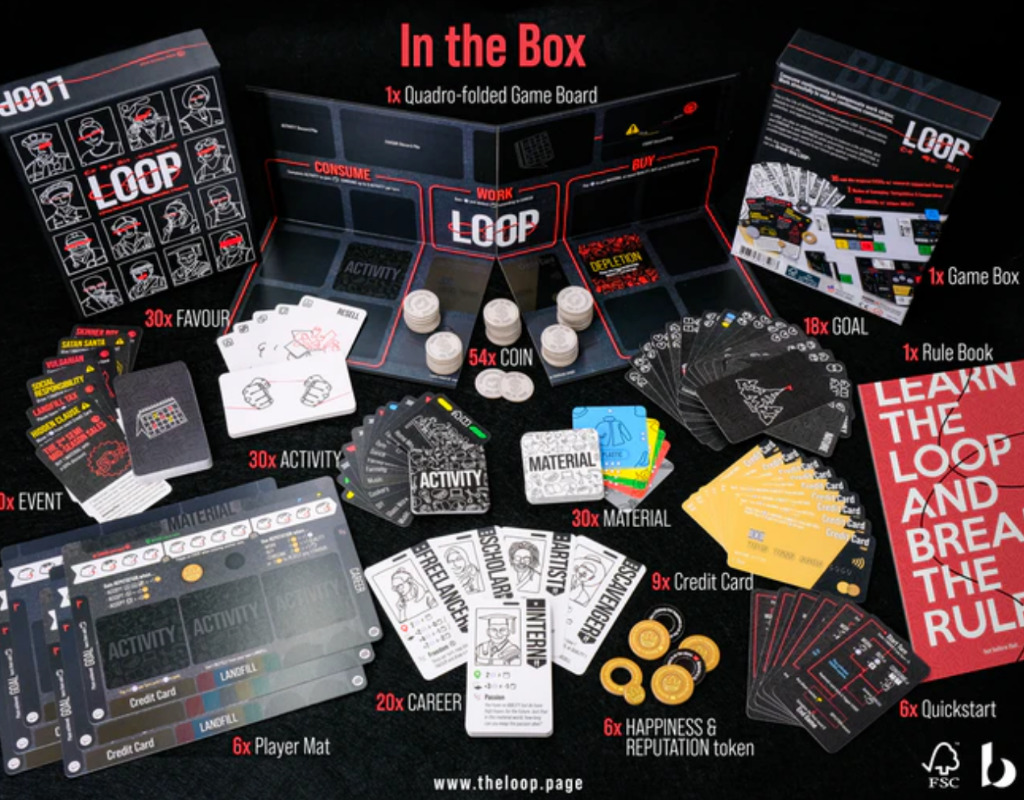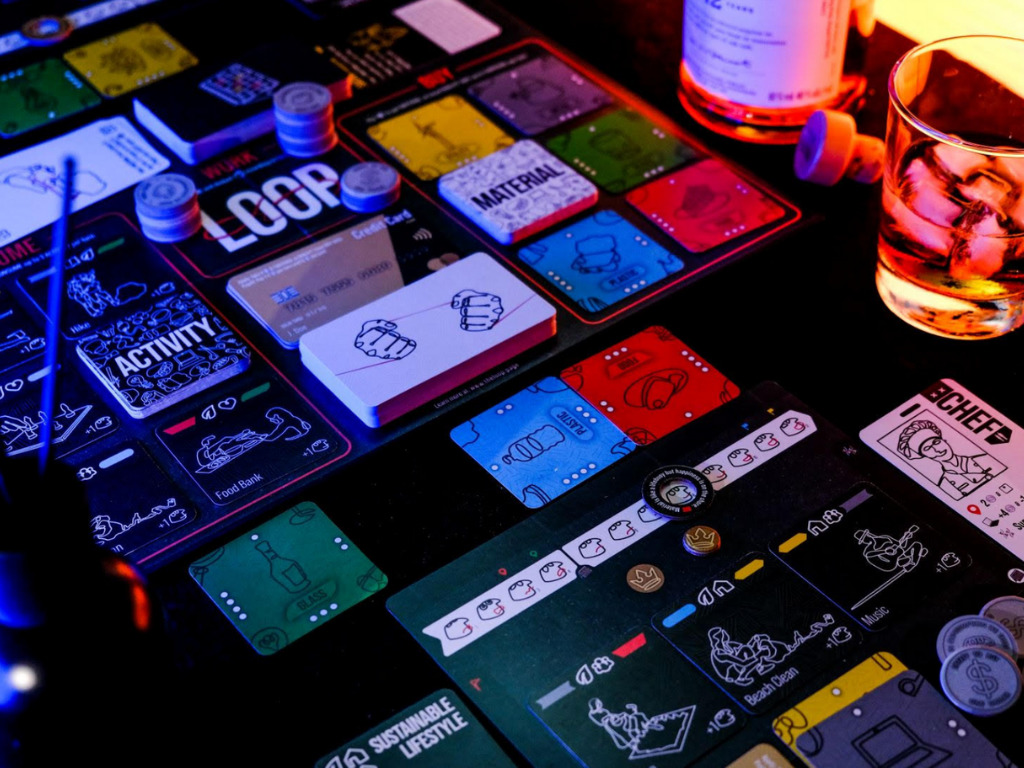Hong Kong-Based Board Game LOOP Promotes SDG 12 Sustainable Consumption & Suggests Alternatives To Materialism
3 Mins Read
Educational board game LOOP: Life Of Ordinary People uses the concept of serious gaming as a channel for change, with the aim of questioning people’s unsustainable consumption behaviours and consumers are taking the bait. The young company made recently debuted its Kickstarter campaign, where it became 100% funded within 24 hours and reached over 800% of its original goals.
Created by founder Cyril Lee and launched by Hong Kong-based research and design studio Blackbody Lab, which uses the black body concept from the realm of physics to develop solutions that tackle social issues, LOOP encourages the practice of SDG 12 – Sustainable Consumption through its real-life inspired gameplay.
Lee based the game on his own living experience in the metropolitan city of Hong Kong to showcase how a materialistic lifestyle influenced various consumption choices. He designed the game with illustrations that are all built in a single continuous line.
LOOP aims to questions people’s materialistic pursuit and educates individuals on the ‘work-buy-consume cycle’ by using satire and messaging enabling players to identify how their consumption behaviours are motivated by marketing gimmicks and cognitive biases.
While playing the game, players will experience the cycle of Materialistic Value Orientation (MVO) and the effects it can have on our environment and our personal happiness. The gameplay works like this: With each turn, you have to make a choice between Work, Buy and Consume to collect Happiness points. If you choose the Buy option, you will earn materials that you can Consume and achieve happiness points. However, to have enough coins to choose Buy, you need to select the Work option, and this reduces your Happiness points.
To win the game, players have to recognize the consequences of MVO and decide sustainable alternatives to earn ‘Happiness’ eventually carrying out the strategy to execute the same.
With a real-life inspired credit card system and 20 player characters, the game has a special feature that includes the Event cards section, that lists around 30 consumption issues each with a research based note such as Loss Aversion, The Diderot Effect, The Decoy Effect, Planned Obsolescence and many more.

It is engaging, interactive, and fun to play; and as an educational tool, it is able to visualise the relationship between human behaviour and the consequences of mindless overconsumption
Dr. Meike Saurwein from the Division of Environment and Sustainability at the Hong Kong University of Science and Technology
The Hong Kong University of Science and Technology has involved the board game as part of its Environment and Sustainability course, and every year, over 400 students play LOOP.
In a press release seen by Green Queen, Dr. Meike Saurwein from the Division of Environment and Sustainability at the Hong Kong University of Science and Technology, said that she played the game as a class activity in one of her courses on Sustainability and Sustainable Consumption. “It is engaging, interactive, and fun to play; and as an educational tool, it is able to visualise the relationship between human behaviour and the consequences of mindless overconsumption. The game allows students to explore how to gain maximum value out of resources, and what kind of behavioural changes can help to sustain a good quality of life without depleting our society’s resources. Both I and my students really enjoy it a lot!
In 2019, LOOP was asked to be a part of The Global Research Forum on Sustainable Production and Consumption. In the past, Lee has won several awards including the Hong Kong Young Design Talent and The 17th National Dashi Silver Award.
Apart from the game based on sustainability, LOOP goes beyond and features sustainable material with the only plastic found in the lamination and coating of the box and game board. It uses Soy ink and water-based coating that reduces Volatile organic compounds (VOCs) during production. In addition, the game will be shipped with zero plastic and will instead use reusable and degradable cardboard boxes and paper stuffing.
By August, the design studio will start mass production of the game and aims to ship it to all those that supported LOOP on the kickstarter campaign by November 2021.
Lead image courtesy of Blackbody Lab.



